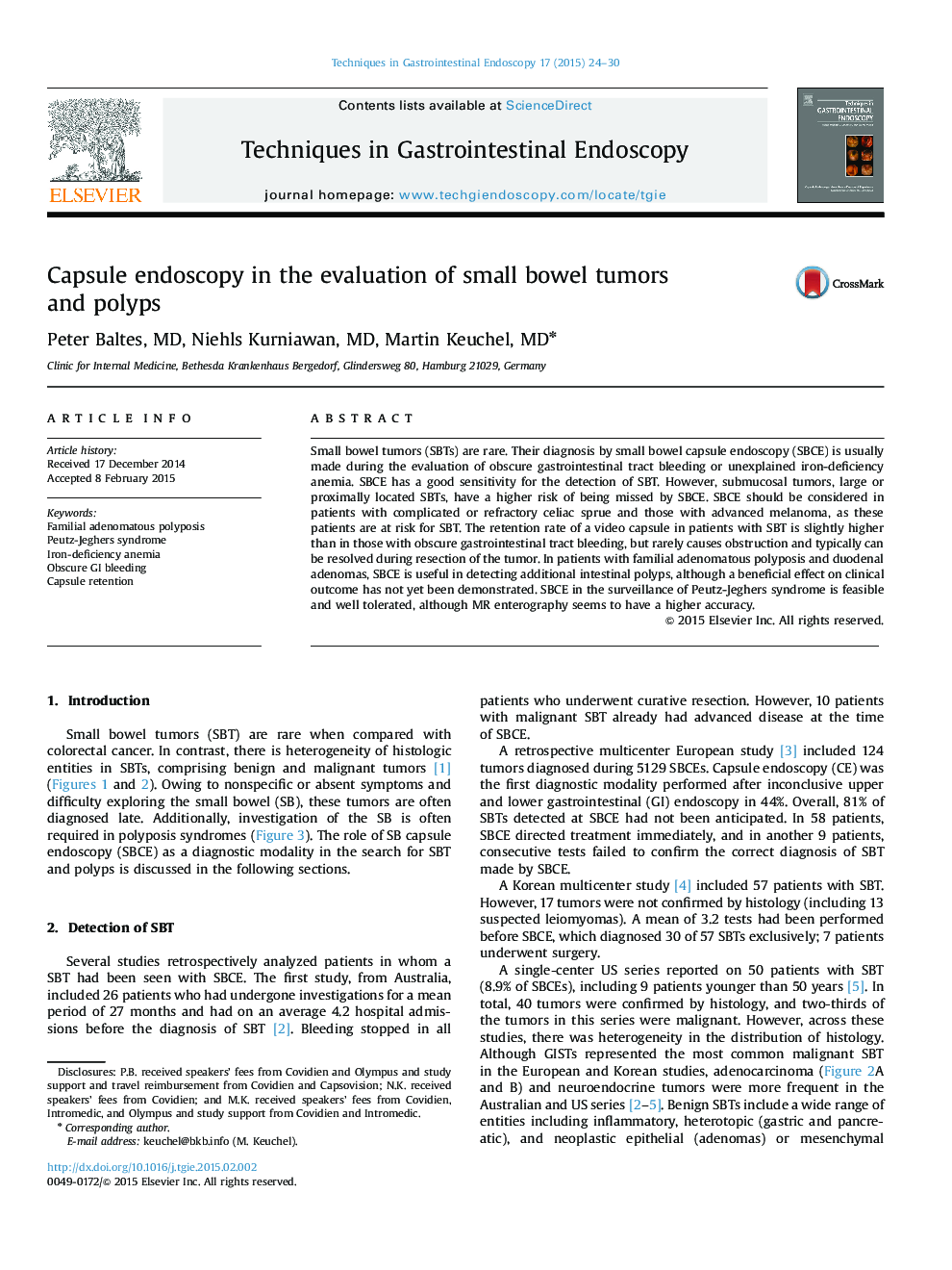| Article ID | Journal | Published Year | Pages | File Type |
|---|---|---|---|---|
| 3322506 | Techniques in Gastrointestinal Endoscopy | 2015 | 7 Pages |
Small bowel tumors (SBTs) are rare. Their diagnosis by small bowel capsule endoscopy (SBCE) is usually made during the evaluation of obscure gastrointestinal tract bleeding or unexplained iron-deficiency anemia. SBCE has a good sensitivity for the detection of SBT. However, submucosal tumors, large or proximally located SBTs, have a higher risk of being missed by SBCE. SBCE should be considered in patients with complicated or refractory celiac sprue and those with advanced melanoma, as these patients are at risk for SBT. The retention rate of a video capsule in patients with SBT is slightly higher than in those with obscure gastrointestinal tract bleeding, but rarely causes obstruction and typically can be resolved during resection of the tumor. In patients with familial adenomatous polyposis and duodenal adenomas, SBCE is useful in detecting additional intestinal polyps, although a beneficial effect on clinical outcome has not yet been demonstrated. SBCE in the surveillance of Peutz-Jeghers syndrome is feasible and well tolerated, although MR enterography seems to have a higher accuracy.
